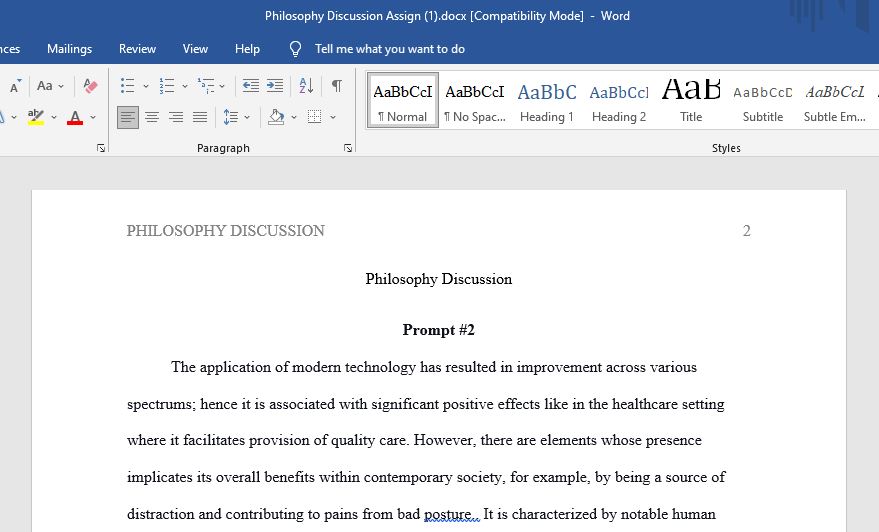Philosophy Discussion
PROMPT #1: INFORMATION TECHNOLOGY. How would you apply Heidegger’s assessment of ‘technology’ in general to modern information technology, and to communication technology (e.g. smart phones, email etc.) in particular? How can be understand information as a ‘standing-reserve’? Can information be viewed as a resource in the same way we view coal or petroleum? Why or why not?
PROMPT #2: DANGERS OF TECHNOLOGY. How would you characterize the dangers of modern technology? How do your concerns compare with Heidegger’s? How does Heidegger’s conception of art’s and poetry’s function in society correspond to your own?
PROMPT #3: RANDOMNESS PROMPT: Will randomness make us free? Philosophers say “no” and they reason as follows: “If an action is undetermined, if it occurs randomly, then its happening is a matter of chance or luck, and not a free action. The whole idea behind free will is that we have a sort of voluntary control over our thoughts and actions. But random actions aren’t under the control of anything. If our actions are the amplified result of some random quantum event, then our actions would be surprising and spontaneous. Random action is more indicative of diminishing control, a loss of freedom, than a sign of that we are free.” Do you agree with this reasoning? Why should spontaneous actions not be able to count as free? Is free will worth having if free agents can’t even surprise themselves? Why should we strive for freedom if it means controlling and disciplining ourselves? Explain your answer.
PROMPT #4: TECHNOLOGICAL DETERMINISM. Do you think that the existence of human free will shows technological determinism to be false? Explain your answer.
Answer preview:

word limit:445
